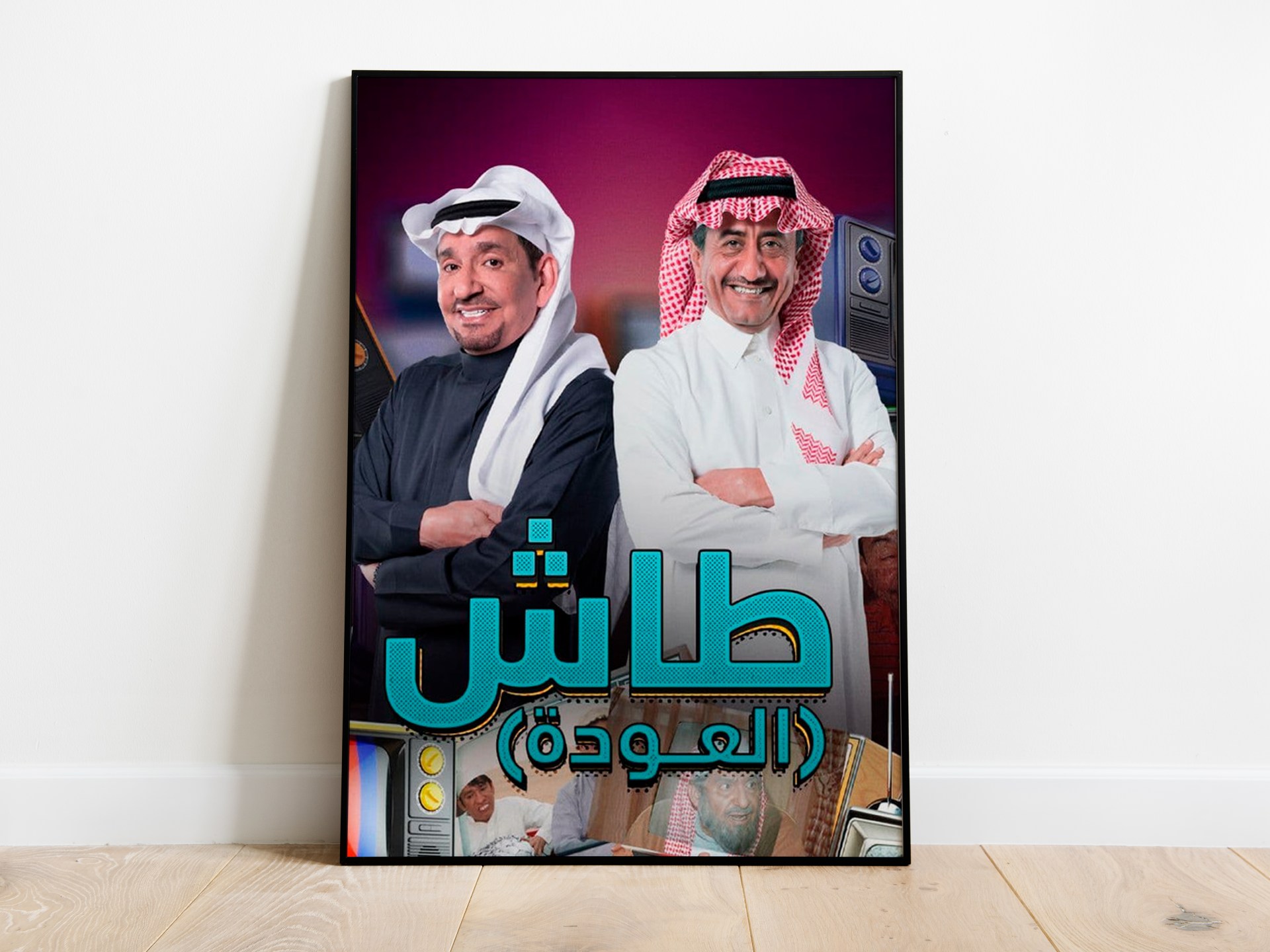After 12 years of hiatus, "Tash Ma Tash" returns again in its 19th part to discuss the issues of Saudi society in a satirical comedy framework.
The problems of Saudi society discussed by Tash in its previous 18 parts have changed many of them at the present time, and so the first episode of the new part was a leap in time, as the two main characters of the series moved 8 years forward, as they found the changes that occurred in society, led by women driving cars or revealing hair and other societal changes that occurred during the past years, as if the series was trying to travel in time to keep pace with the new era.
Like its previous parts, "Tash Al-Awda" revolves around separate and connected episodes at the same time, which sheds light on social phenomena that the two protagonists are exposed to after many changes that have occurred in Gulf societies, especially in the last ten years.
The episodes of the series varied in quality, as there were episodes that deserved praise, starting with the first episode "The Thunderbolt", which was a good entrance for the return of the crew again and their transition in time through a thunderbolt that took them 8 years to the future that is the present we live in now.
As well as the 19th episode "Shin B. Wow", which is taken from a true story, the episode discussed the issue of drugs and their impact on young people, and it won the admiration of many, especially for the sensitivity of the issue it deals with and the impact of the drug "Shabu" on young people and making them carry out criminal acts under the influence of drugs.
But most of the episodes were not at the same level of quality or the quality of the previous parts of the series, and this may be due to various reasons, including the following:
Writing
The series suffered from sagging in trying to merge the issues it wants to discuss and present in one episode, and this may be due to the nature of the series critical ironic mainly, trying to write about a specific issue and merge it into a dramatic event consisting of one episode is very complicated and may succeed and may fail, which is embodied in the second episode of the series "The Eye on You", where the idea was very consuming and old and had already been presented before in several forms, the corrupt businessman who tries to remember his past His crimes to deal with are old and have been dealt with repeatedly in different ways, and even an attempt to make a comedy between the husband who is busy with his crisis on his wedding night and his inability to communicate with his wife has already been presented several times; thus the episode suffered from repetition and lightness as well.
Representation
The biggest crisis in the series is acting, Nasser Al-Qasabi and Abdullah Al-Sadhan, who embody the two main characters in the series, suffer from difficulty in playing roles, especially with the different characters and their positions, with simple exceptions such as the fifth episode "Content Seller", in which there was a clear attention to the character and its details and the crises it suffers from, there was repetition in the embodiment and the crises of the characters and their natures, as if they were the same character every time in different situations, and even with different situations, the reactions of the characters are similar.
The supporting characters also suffered from marginalization, because of the nature of the series, the focus was on the main character and the supporting roles declined, as if the actors were throwing words without a real understanding of the crisis of the character they present and its nature, for example, the character of the son who seized his family's money in the first episode, we find him throwing words without awareness of the character's conflict and the repercussions of the situation, even if the work was mainly comical.
Attempts to perceive the times
The series tried a lot to use the techniques of the modern era and the vocabulary of "social media" in merging the old series with the vocabulary of the modern era, and there was a clear diligence on this point, but like most dramas recently, it tried to use the stars of social media platforms to integrate them into the series, such as the media Maha Abdullah and Rahaf Al-Qahtani, who have large followers on Instagram, and may not be suitable as actresses.
"Tash-Al-Awda" also suffered from a real identity crisis, as with the difference in the era, the series tried to maintain its old form and its way of criticism and satire while integrating modern ideas, technology and the different language of the era in 2023, and the series succeeded in some episodes in this matter, but others suffered from a loss of identity in the first place.
If the makers wish to complete it in future seasons, the series may need to know the identity, nature and purpose of the work, while leaving space and opportunity for other stars to be present alongside its current protagonists.
"Tash - Al-Awda" is the 19th part of the most famous Saudi series "Tash Ma Tash", starring Nasser Al-Qasabi, Abdullah Al-Sadhan, Youssef Al-Jarrah, Habib Al-Habib, Rimas Mansour, Turki Al-Sadhan, Mohammed Al-Kanhal, Elham Ali, Mohammed Al-Halawani and a number of guests and guests of honor, and it is written by Anbar Al-Dosari, Amani Al-Salimi and Abdul Aziz Al-Modhesh and directed by Mohammed Al-Qaffas, and consists of 20 episodes and is presented on the channel "MBC" (MBC) and Shahid platform.

